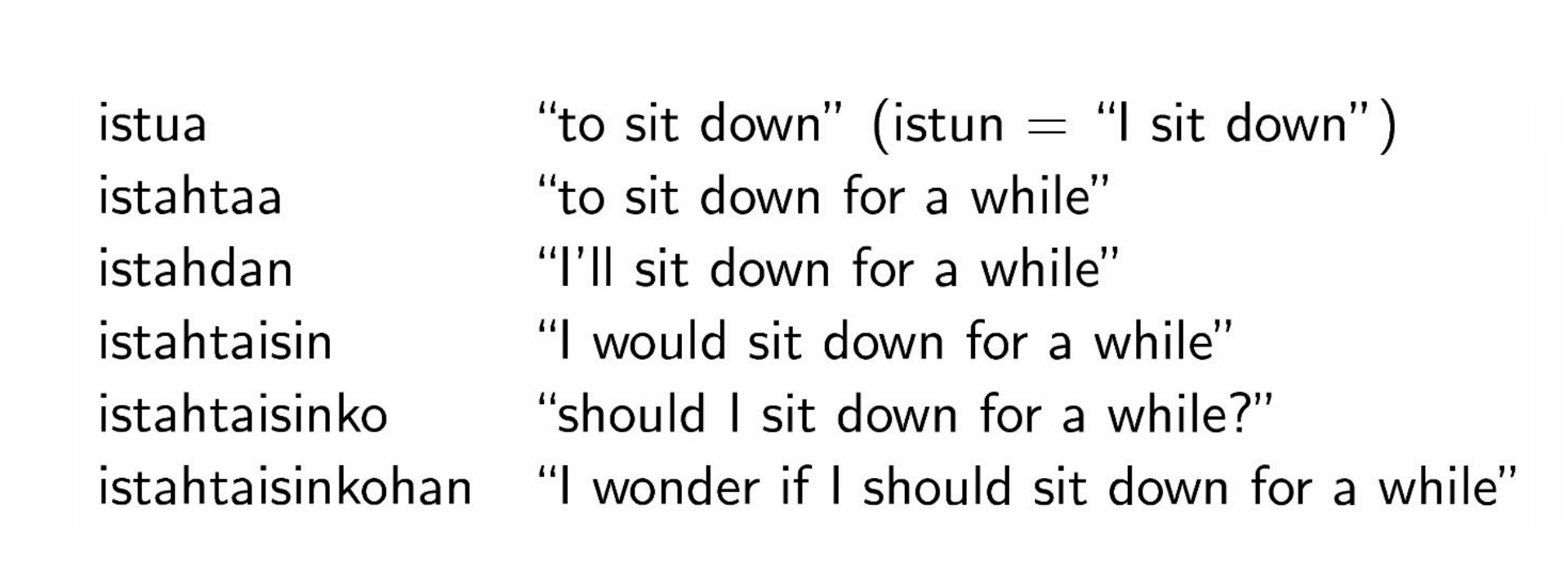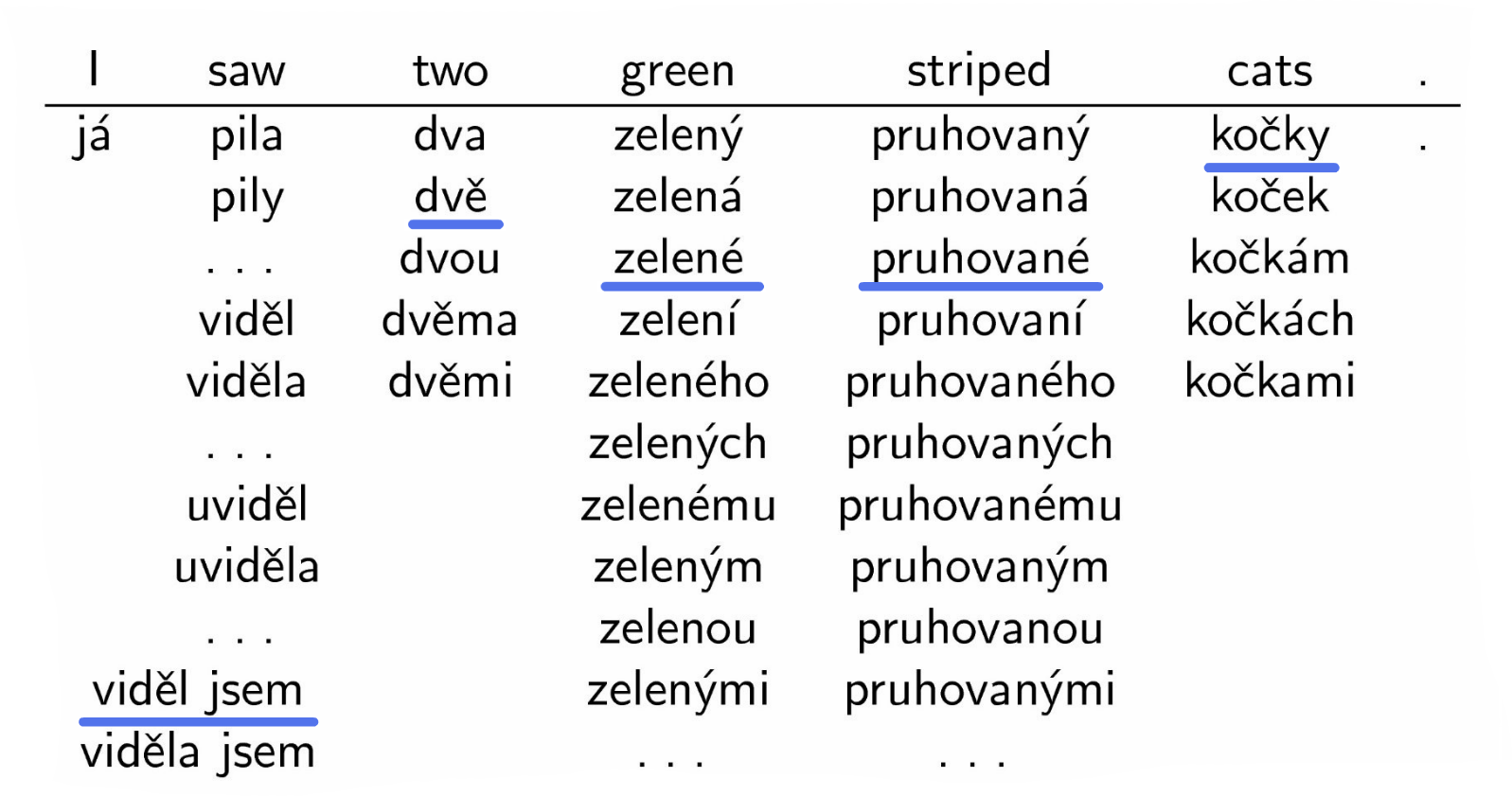Rich Vocabulary: Difference between revisions
Jump to navigation
Jump to search
No edit summary |
No edit summary |
||
| Line 13: | Line 13: | ||
While German has some degree of inflection, it is the Germans' fondness of complex word compounds that causes the large vocabulary problem for MT. Consider the following compound: | While German has some degree of inflection, it is the Germans' fondness of complex word compounds that causes the large vocabulary problem for MT. Consider the following compound: | ||
[[File:rindfleish-prezi.png| | [[File:rindfleish-prezi.png|500px]] | ||
=== Finnish -- agglutination === | === Finnish -- agglutination === | ||
[[File:finnish-prezi.png| | [[File:finnish-prezi.png|500px]] | ||
=== Czech -- fusional inflection === | === Czech -- fusional inflection === | ||
[[File:czech-inflection-prezi.png| | [[File:czech-inflection-prezi.png|500px]] | ||
== Large Vocabulary Sizes in MT Pipeline == | == Large Vocabulary Sizes in MT Pipeline == | ||
Revision as of 13:23, 12 August 2015
 | |
| Lecture video: |
web TODO Youtube |
|---|---|
Examples of Languages with a Rich Vocabulary
German -- compounding
While German has some degree of inflection, it is the Germans' fondness of complex word compounds that causes the large vocabulary problem for MT. Consider the following compound:


